Aretousa
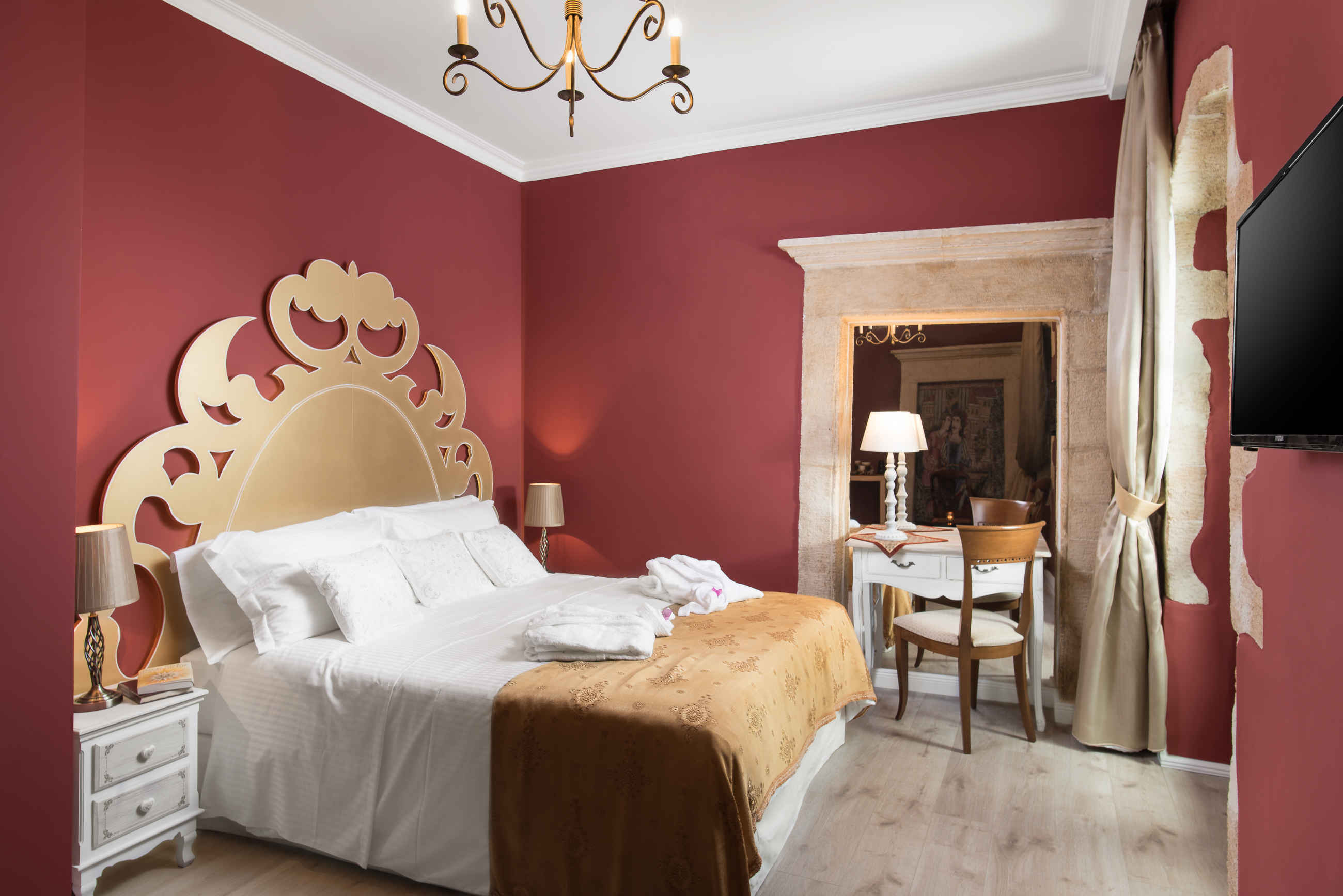
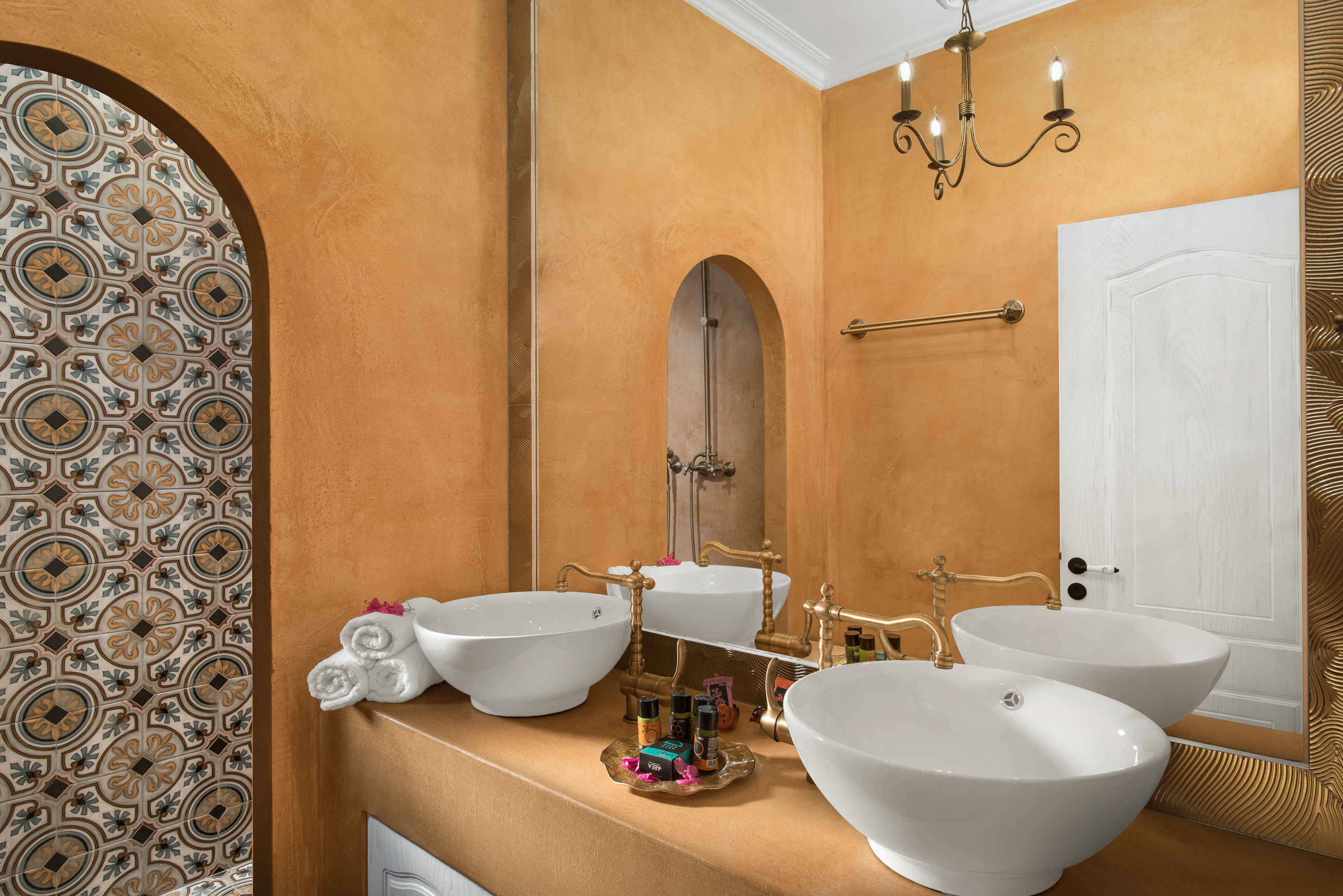
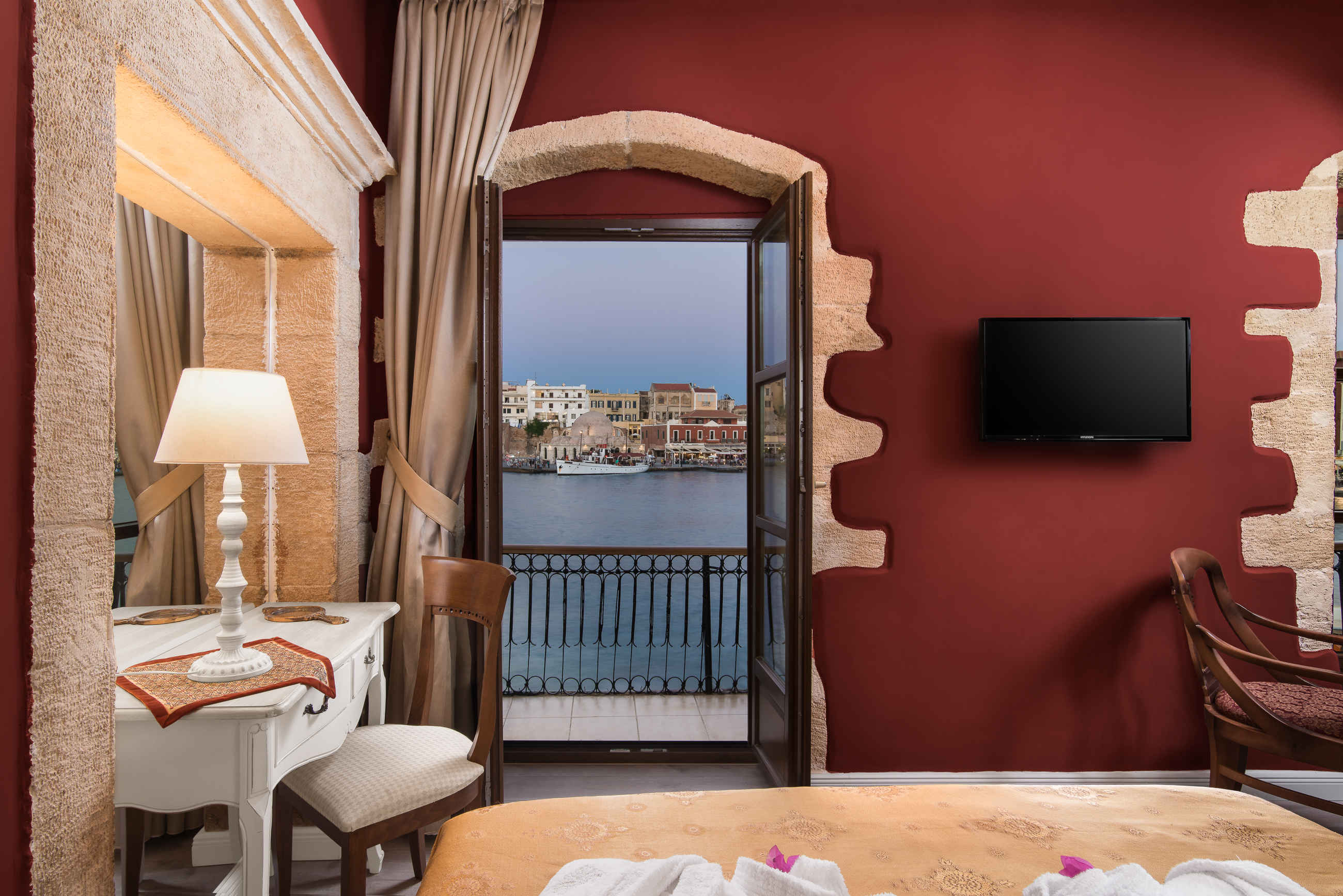

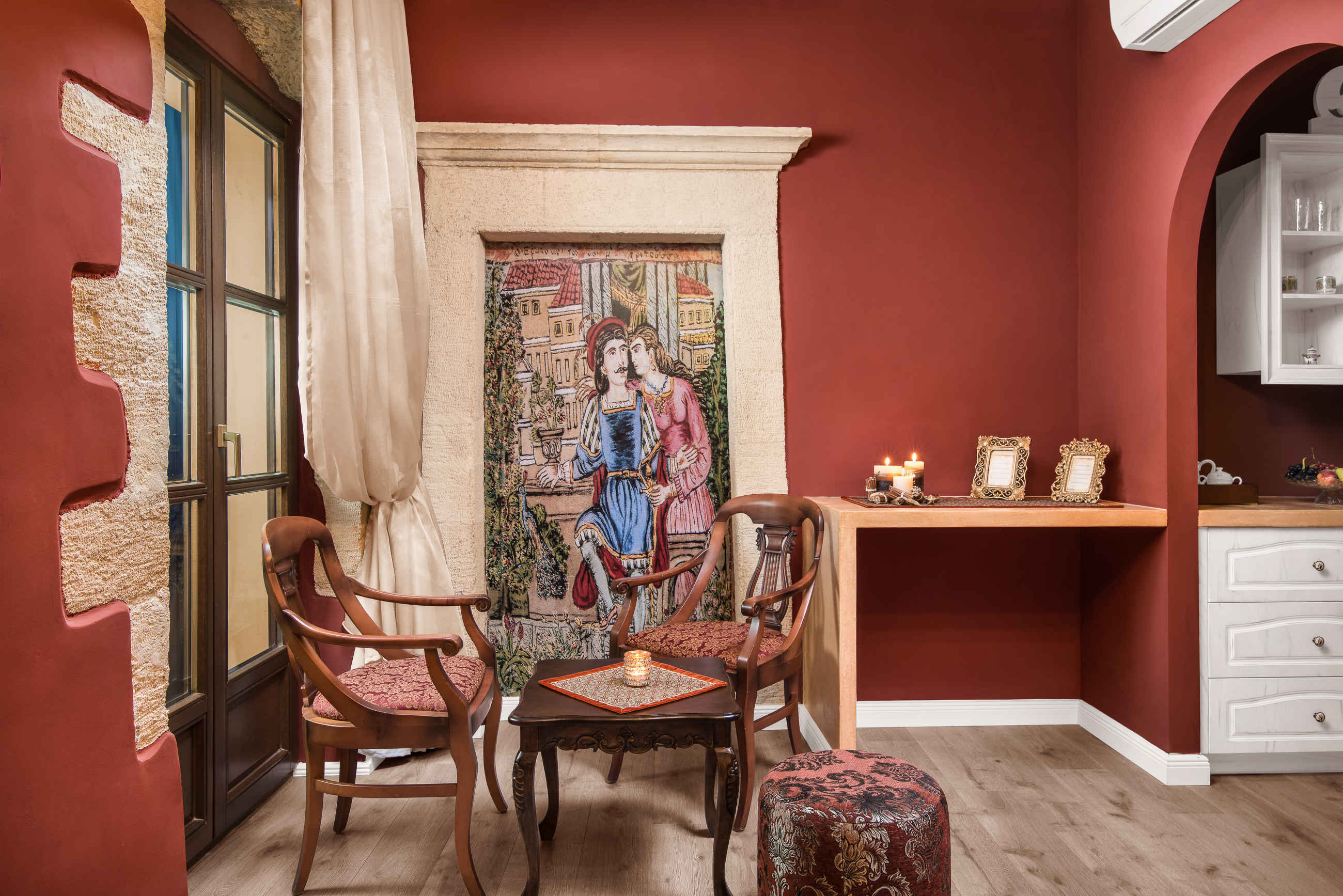
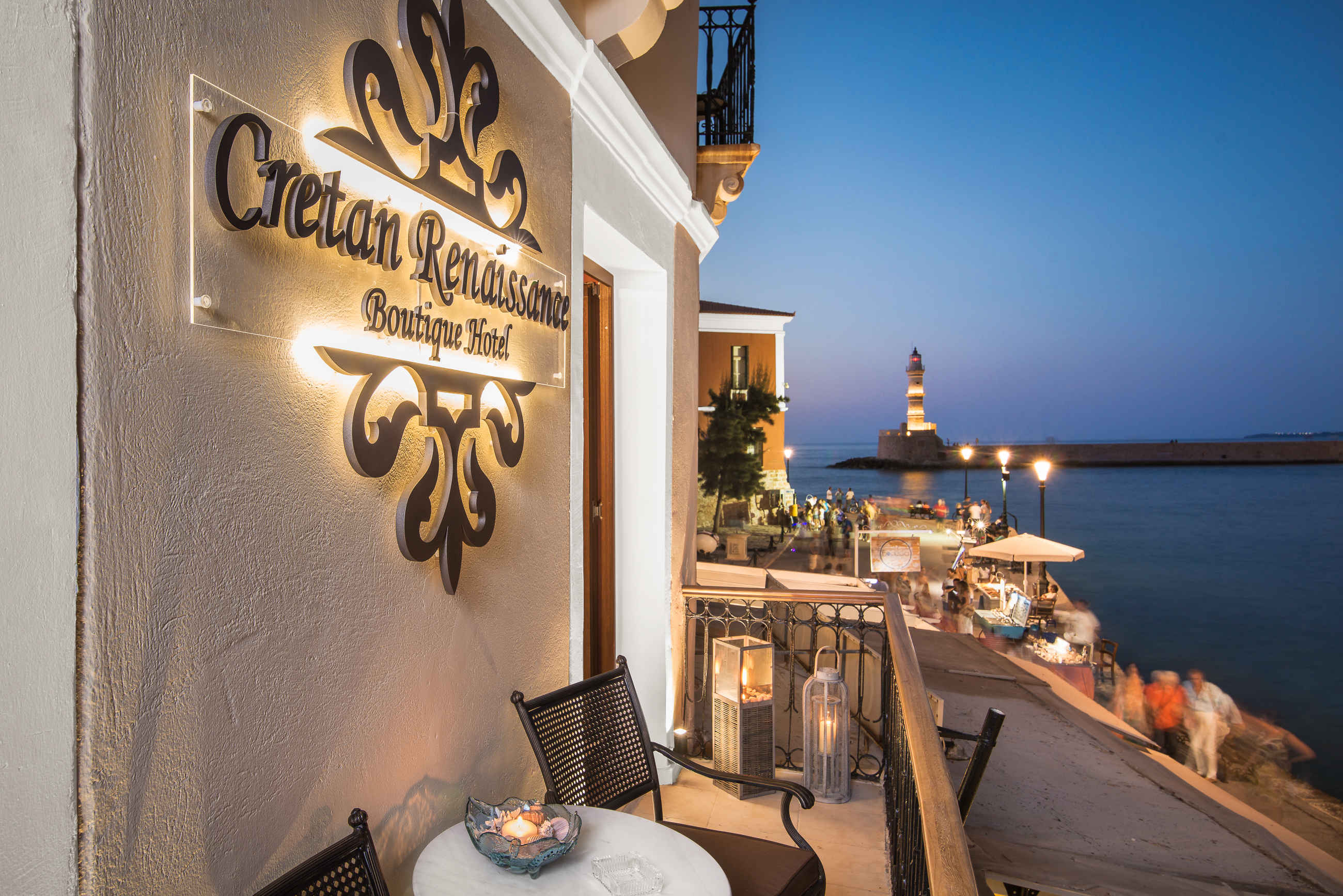






Conveniences
This idyllic room is inspired by the 16th century epic poem by Vincénzos Kornáros “Erotókritos”, describing the love of princess Aretoúsa, daughter of the king of Athens, and Erotókritos, the adopted child of the king; a love socially forbidden. The spacious balcony centered in the middle of the building with an overall view of the Old Port of Chania, is part of this very room and the room is equipped with all contemporary conveniences.
History
The poem “Erotókritos” by Vincenzos Kornaros describes the love between princess Aretoúsa, daughter of the king of Athens, and Erotókritos, the adopted son of the king; a love socially forbidden. The king discovers this love and banishes Erotókrito in exile and at the sea. Nonetheless, Erotókritos, after years returns powerful and unrecognizable to the kingdom, and runs to the king’s help at the face of war. He, as a handsome and courageous lad, finally succeeds to unite with Aretoúsa.
This long narrative poem extends in ten thousand lyrics, structured in almost 15 syllables each. The deep lyricism, the lively language, the power of description, the rough profiling of heroes and excellent picturing of psychological states, as well as the climax in dramatic conflicts within the intense element of naturalism, ascribe the work with a characteristic epic composition of great inspiration. The first edition of “Erotókritos” took place in Venice in the 17th century. Since then, it was widely propagated and was favored so much by people, that even until some years ago, folk singers (Lyra and violin players) knew by heart-from an oral tradition- big parts of the poem, which they used to recite in big festivals and friendly meetings.
